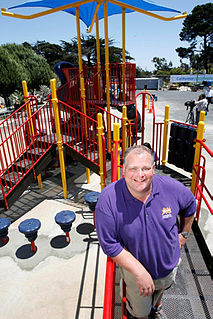A Quote by Rick Perry
It's... time to introduce scholarship programs that give students a choice, especially those who are locked into low-performing schools.
Related Quotes
The American Federation of Teachers has a long track record of working with administrators, parents, and communities to provide real help to struggling students and low-performing schools. We've learned that intensive interventions, proven programs, and adequate resources can transform students' lives and their schools.
One of the most consistent findings about low performing schools and students is that "home variables" (parental income and education, etc.) are more predictive than "school variables." But, having said that, we as a society can have much more effect on the school variables than on the home variables, so it's important and valuable to focus on the question of which interventions in schools are most effective and which are least effective.
Apparently almost anyone can do a better job of educating children than our so-called 'educators' in the public schools. Children who are home-schooled by their parents also score higher on tests than children educated in the public schools. ... Successful education shows what is possible, whether in charter schools, private schools, military schools or home-schooling. The challenge is to provide more escape hatches from failing public schools, not only to help those students who escape, but also to force these institutions to get their act together before losing more students and jobs.
The most successful teachers in low-income communities operate like successful leaders. They establish a vision of where their students will be performing at the end of the year that many believe to be unrealistic. They invest their students in working harder than they ever have to reach that vision, maximise their classroom time in a goal-oriented manner through purposeful planning and effective execution, reflect constantly on their progress to improve their performance over time, and do whatever it takes to overcome the many challenges they face.
The tragedy of government welfare programs is not just wasted taxpayer money but wasted lives. The effects of welfare in encouraging the break-up of low-income families have been extensively documented. The primary way that those with low incomes can advance in the market economy is to get married, stay married, and work—but welfare programs have created incentives to do the opposite.

































